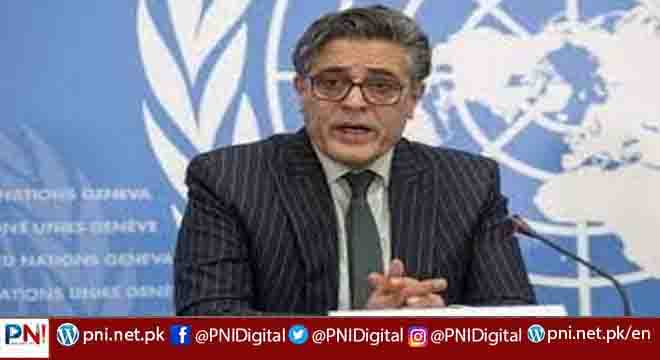GENEVA, Mar 31 (APP): The Organization of Islamic Cooperation (OIC) has, at a meeting of the Human Rights Council, called the recent acts of desecration of the Holy Quran as not just a provocation to Muslims, but a step to sabotage inter-faith harmony and peace.
“This year we have witnessed at least five incidents of public desecration of the Holy Quran in Denmark, Sweden, and the Netherlands – as the latest manifestation of racial hatred and xenophobia,” Pakistan’s Ambassador to the United Nations in Geneva, Khalil Hashmi, said in a general debate of the 47-member Council on Friday, speaking on behalf of the OIC.
“The OIC Group echoes the outrage of nearly 2 billion human beings whose faith is anchored in the message of the Quran,” Ambassador Hashmi told the delegates, citing a verse from the holy book that said, “Let there be no compulsion in religion”.
That affirmation came over millennia before freedom of religion and belief and freedom of expression got enshrined in legal instruments.
In this context, the Pakistani envoy said an unequivocal condemnation should have been the starting point of the international community’s response to these acts.
“Sadly,” he added, “some chose to hide behind the self-serving interpretation of human rights.”
“Absence of preventive legal deterrence, inaction, and shying away from speaking out encourages further incitement to hatred and violence,” Ambassador Hashmi said, noting that unsurprisingly more incidents have followed.
“If those responsible for prevention were not complicit earlier; They are now,” he said, adding, “They are in violation of their obligations under international human rights laws.”
The Pakistani envoy also said he was appalled at the human rights machinery’s general apathy towards these incidents.
“We particularly note with disappointment the choice made by Special Rapporteurs on Freedom of Religion and Belief, and Freedom of Expression to not call out these deliberate acts of hate,” he said, pointing to speaking in nuanced terms, without condemning these incidents, starkly contrasts with their practice of often naming countries and pronouncing publicly and clearly on events incomparable in magnitude or impact.
“We reject selective academic interpretations of human rights law. The selectivity and partiality on these issues, incidents, and interpretations is at variance with high standards of objectivity and independence expected of them.
“It has shaken our faith in their work,” Ambassador Hashmi added.
“Finally, we have a message for those enjoying impunity in desecrating our Holy book! When you hold the next copy, try reading it.”
Follow the PNI Facebook page for the latest news and updates.









